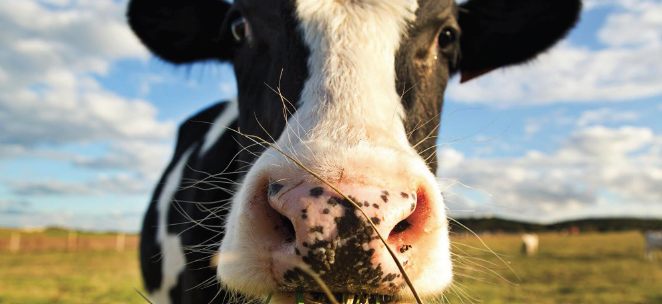News
Bovine TB: The case against culling badgers

 IN RECENT weeks, The Herald has featured in-depth articles on Welsh Government policy towards bovine TB, its eradication and, inevitably, the role of badgers in the transmission and control of the disease.
IN RECENT weeks, The Herald has featured in-depth articles on Welsh Government policy towards bovine TB, its eradication and, inevitably, the role of badgers in the transmission and control of the disease.
On October 21, we reported that Cabinet Secretary for Rural Affairs Lesley Griffiths had announced a ‘consultation’ on proposals for tackling the problem that blights Welsh agriculture both economically and psychologically. The Welsh Government’s proposals for a new regional approach to bovine TB seemed to rule out the sort of badger cull that is taking place in England where, in September, the British Government extended the culling of badgers to seven new areas. The experience of a pilot programme in Northern Ireland was stated as an option to be considered in Wales, however. In that pilot, badgers were trapped in cages and infected animals were killed humanely. The proposed new approach in Wales follows a trial badger vaccination programme.
Global shortage of the vaccine meant that the programme was suspended at the end of 2015. Some critics condemned this as an administrative failure on the part of the Welsh Labour Government because it did not secure sufficient stocks of vaccine before commencing the trails. By contrast, a report by the Animal and Plant Health Agency for the Welsh Government was interpreted by the Badger Trust as heralding the trial’s success. The Badger Trust is a non-profit organisation working for the protection of the European badgers (Meles meles) that are indigenous to Britain.
The Welsh Government’s new approach will see low, intermediate and high TB areas designated across Wales. Designation will be based on the incidence of bovine TB in an area and thence define a specific approach to tackling the disease therein. The consultation encompasses measures to be applied to protect low TB areas and reduce disease in intermediate and high TB areas. In high TB areas, the government will ‘explore and develop ways to break the transmission cycle between cattle and badgers where it can be demonstrated badgers are contributing to the problem in chronic herd breakdowns’.
Lesley Griffiths’ announcement was given a general, if cautious, welcome. Shadow Cabinet Secretary for Energy, Climate Change and Rural Affairs Simon Thomas, Mid and West AM, acknowledged it as ‘a step forward’: “It is welcome that the link between the disease in wildlife and in cattle is being recognised and that measures are being taken to address the policy vacuum that has been in place. It needs to be ensured that the measures taken are targeted, effective and humane. Recognition that a regional approach is needed to tackle the problem is welcome.
“Instances of TB infection in cattle have stayed persistently high in West Wales and is increasing in new areas in Carmarthenshire.”
For the Farmers’ Union of Wales, its President Glyn Thomas concluded that the statement ‘didn’t go as far as we hoped it might and there is a lot of detail to be worked out’. Glyn Thomas sad the FUW would be consulting its members on the proposal.
WHY HASN’T VACCINATION BEEN HAILED A SUCCESS?
In the wake of Lesley Griffiths’ announcement, Sarah Reisz from the Dyfi Badger Group wrote to the Cabinet Secretary. Sarah Reisz expressed ‘concern and disappointment’, viewing the proposals as ‘a very retrograde step’. Commenting on the Test and Vaccinate or Remove (TVR) approach, she identified it as ‘a form of ‘reactive culling’ which aims to be more selective, and involve fewer numbers of badgers killed – and thus avoid perturbation’. The problems with such a policy were many, Sarah Reisz claimed: “Indications are that killing even very few individuals from badger social groups, may well cause perturbation.” Perturbation is a term given to changes in the behaviour of badgers when populations are culled. Research led by Jon Bielby and published in a leading academic journal 2014 found that: “Small-scale culling (such as TVR) changes badgers’ behaviour in ways that risk increasing TB transmission among badgers and exacerbating cattle TB incidence rather than reducing it.”
Acknowledging that Lesley Griffiths voted against badger culling in Wales in 2009, Sarah Reisz claims that the new proposals ‘renege on the Labour Government’s previously stated position that the science does not support culling of badgers in any form as a control measure for bovine TB’. She said: “Reneging on this is unfortunately typical of the kind of politics that has led to voter disenchantment and disengagement.” In her letter, Sarah Reisz asks the Cabinet Secretary how the ‘success’ or ‘failure’ of this policy will be measured. She claims that the incidence of TB in cattle, reported in The Herald as 0.4% for cattle in Wales, has ‘already declined significantly in Wales over the past four years, while vaccination of badgers has been taking place. Why, therefore, isn’t this policy being hailed as a success?’
It flies in the face of virtually all the scientific evidence, Sarah Reitz says, to keep blaming badgers for the spread of bovine TB: “The science shows repeatedly that the problem and the solutions come from cattle management, and that badger culling is a costly and unhelpful distraction. This [announcement] seriously impacts on the good name and kudos that Wales (and the Labour Party) has gained over the past few years by rejecting the discredited policy of culling in favour of vaccination. It has been shown repeatedly that culling a native wildlife species is not, and cannot be, the answer to a problem caused by our own practises, and has always had detrimental consequences for our ecology. It is morally and ecologically wrong.
“Wales has already suffered a particularly catastrophic decline in wildlife species. How can we honestly talk about ‘conservation for our children and grandchildren’ while sanctioning and encouraging a dynamic of wildlife killing?”
OUTSTANDING QUESTIONS
In Northern Ireland, the system of trapping badgers in cages and ‘humanely’ killing infected animals is a so-called TVR approach. The Republic of Ireland has been culling badgers for more than 30 years, reportedly killing over 60,000. The result is that badgers are effectively extinct over around one-third of the land area and badger populations may never recover. The Irish government started a four year vaccination programme in 2014, which will be reviewed in 2017, as they look to phase out culling. Although there has been some reduction in the incidence of bovine TB in the Republic of Ireland, it is impossible to attribute this to a single factor. The number of cattle herds has decreased significantly over the last 30 years, mainly for economic reasons. Meanwhile, similar trends in the declining incidence of bovine TB incidence have been identified in NI, which has not practised badger culling.
For readers who may be wondering why cattle are not vaccinated against TB, it is because, although a vaccine is available, it is currently banned by EU for exported animals or meat. It is possible to obtain an EU ‘derogation’ which would allow the UK to introduce a programme of cattle vaccination against bovine TB without further delay. However, critics claim that Defra have been ‘dragging their feet on this since at least 2011’ and that there is no political will for this course of action, which is opposed by UK farming unions. The Department for Environment, Food and Rural Affairs (Defra) has estimated that there will be no cattle vaccination until at least 2023.
Different approaches may be suitable in different locations. Many have advocated the New Zealand approach, where the main wildlife vector of the disease is the possum. The targeted cull of possums is possible in New Zealand because the animal is non-native and considered a conservation pest.
WHAT HAS CHANGED?
In common with other such groups and the Badger Trust, the Dyfi Badger Group is not against most of the government’s new proposals, which are enhanced cattle measures. Indeed, they contest that cattle measures are what has brought success so far. Groups opposed to badger culling across Wales are expected to work together on all fronts, from promoting the evidence for vaccination to taking direct action against culling. In England, groups have taken direst action with the explicit intention of increasing the cost of policing the cull. The Herald understands that vaccination costs between £400-£500 per badger, while culling is more expensive at between £6,000- £7,000. At the heart of Sarah Reisz’s letter to the Cabinet Secretary is the question: ‘What has changed?’ If vaccination was judged the best option in 2012, what new evidence makes it necessary to change that decision? Critics would claim that the reverse is true, that new evidence indicates even more strongly that no form of culling badgers is effective and that vaccination is more preferable than ever.
So, Lesley Griffiths, what has changed?
Crime
Nine deny Class A drugs conspiracy as case set for Crown Court trial

Eight remanded in custody as four-week trial fixed for May 18
NINE people have denied conspiring to supply Class A drugs into Pembrokeshire following a major police investigation.
The charges relate to the alleged supply of Class A drugs between February and November 2025. The arrests were made as part of a proactive operation led by Dyfed-Powys Police’s Serious and Organised Crime Team, with warrants executed across Carmarthenshire, Pembrokeshire and areas outside the force area.
All nine defendants appeared before Swansea Crown Court, where they entered not guilty pleas.
Those charged are:
- Tommy Lee Jones, 32, of Castle Quarry, Monkton
- Ryan Hare, 27, of Heol Cae Pownd, Cefneithin
- Kalum Haines, 22, of Woodland Park, Neyland
- Leon Haines, 25, of Ashdale Lane, Pembroke
- Zack Fecci, 20, of Hawkstone Road, Pembroke Dock
- Ahmed Al-Farraji, 25, of Topaz Street, Cardiff
- Usman Afsar, 40, of Woodborough Street, Bristol
- Adam Noraddin, 25, of Plas Nanthelyg, Cardiff
- Mili Davies-Blewett, 25, of land adjacent to Pen Rhos, Maesybont, Carmarthenshire
Eight of the defendants were remanded in custody. Davies-Blewett was re-granted bail.
They will next appear at Swansea Crown Court on May 18.
Community
No asylum seekers housed in west Wales hotels, latest Home Office figures show

WEST Wales currently has no asylum seekers being housed in hotels, according to the latest figures published by the Home Office.
Data released up to December 31, 2025 shows that 30,657 people were being accommodated temporarily in hotels across the UK while awaiting decisions on their asylum claims. The figure represents the lowest level recorded for 18 months.
However, the statistics confirm that none of those individuals are being housed in hotels in any of the five counties that make up west Wales. Hotels across Carmarthenshire, Ceredigion and Pembrokeshire are all recorded as accommodating zero asylum seekers.
The use of hotels for asylum accommodation became a major national political issue in recent years, with protests taking place outside some sites across the UK.
Labour has pledged to end the use of asylum hotels by the end of the current Parliament, which would be 2029, if not sooner.
Plans previously existed to house asylum seekers in west Wales. The Home Office withdrew proposals to accommodate up to 241 people at the Stradey Park Hotel in Carmarthenshire in October 2023 after protests outside the site led to arrests. Dyfed-Powys Police issued an appeal for “calm and co-operation” following what they described as a concerning escalation in behaviour.
The hotel, which had been intended to house families awaiting asylum decisions, subsequently closed, resulting in the loss of 95 jobs, including 50 full-time and 45 part-time roles, and the cancellation of events.
West Wales has also previously hosted asylum accommodation at Penally military training camp near Tenby. The site was used between 2020 and spring 2021 to house between 240 and 250 men, mainly from countries including Iraq, Iran and Syria.
Both the Welsh Government and Pembrokeshire County Council argued the camp was unsuitable, with inspectors describing conditions as run down. The facility was later closed, residents were relocated elsewhere, and the site was returned to the Ministry of Defence.
Nationally, the number of asylum seekers in hotels peaked at 56,018 at the end of September 2023 under the Conservative government. It later fell to 29,561 by the end of June 2024, just before the general election.
The latest figures show numbers at the end of December were 15% lower than the previous quarter, when 36,273 people were recorded as staying in hotel accommodation.
Cover image: Asylum Seekers at Penally MOD Camp in 2020
Farming
Farmers still in the dark as SFS launches today

SCHEME DETAILS MISSING, SAYS PEMBROKESHIRE MS
FARMERS across Wales are facing continued uncertainty after the Welsh Government confirmed that full details of two key elements of the Sustainable Farming Scheme (SFS) will not be available when the application window opens on Monday (Mar 2).
Officials have acknowledged that further information on the Optional and Collaborative actions — two of the scheme’s core layers — will be published “in due course”, with applications for many of these measures not expected to open until later this year.
While some actions, including organic maintenance and woodland creation, will proceed independently of SFS participation, significant parts of the scheme remain incomplete as farmers are being asked to begin the application process.
The situation has prompted concern within the sector, with farm businesses warning that uncertainty over the scheme’s full scope makes forward planning difficult at a time when margins are already under pressure.
Commenting on the launch, Welsh Conservative Shadow Cabinet Secretary for Rural Affairs, Samuel Kurtz MS said: “It is unacceptable that, as the Sustainable Farming Scheme application window opens, two of its core components — Optional and Collaborative — are still not fully designed. After years of consultation, farmers are being asked to commit to a scheme where significant elements remain undefined or delayed until later in the year.
“Farm businesses cannot plan on the basis of ‘further detail in due course’. Decisions about land use, investment and cashflow require clarity from day one. This last-minute uncertainty reflects a clear lack of foresight from the Welsh Labour Government.
“Farmers were promised stability and certainty. Instead, they are being given ambiguity and a rolling timetable. That is not good enough for an industry that needs confidence, not confusion.”
The Sustainable Farming Scheme is intended to replace the EU-era Basic Payment Scheme and form the backbone of agricultural support in Wales, linking public funding to environmental and land management outcomes.
The Welsh Government has been approached for comment.
-

 News6 days ago
News6 days agoLabour and Plaid criticised over £1.2m anti-racism ‘metaverse’ project
-

 Crime7 days ago
Crime7 days agoEleven-year jail term for rape after judge finds victim ‘particularly vulnerable’
-

 Charity7 days ago
Charity7 days agoCharity launches bid to save Foley House with new community cooperative
-

 Health6 days ago
Health6 days agoHealth services row escalates as MSs demand action over Withybush and Bronglais
-

 Crime7 days ago
Crime7 days agoHaverfordwest man guilty of raping his own sister
-

 Crime7 days ago
Crime7 days agoMerlins Bridge man denies six child sex assault charges
-

 Crime7 days ago
Crime7 days agoMan who threatened to kill Herald editor given suspended prison sentence
-

 Politics6 days ago
Politics6 days agoFarage vows to strip Cardiff’s ‘City of Sanctuary’ status ahead of manifesto launch






















